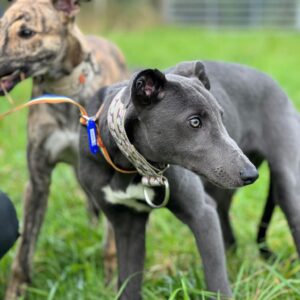The world is not built for dogs. It would be wonderful if it was but it is not. Many people ahead of getting a dog have an idealism of what dog ownership looks like. Dogs are individuals with their own characters, their own minds and sometimes this can mean we are left navigating issues or behaviors stemmed from over-excitement, fear, stress or anxiety from an animal trying the only way they know how to make us understand them. All Behaviours are functional to our dogs, even the embarrassing ones like humping or leash pulling or the problematic ones like counter surfing or big displays of emotions on walks – it is serving a function for our dog. Either they are bored and seeking and sniffing out food is both entertaining and meets a dopaminergic thrill for them when food is left in nose – view on the kitchen table or they are overwhelmed and stressed perceiving every other dog or person as a potential threat on walks and their nervous system is proactively reacting that way in a bid to feel safer and get space. Maybe your dog is a breed purpose built for chasing and running in zig zags and being outside on the leash for the first time they’re smelling wonderful and new things that day, this and coupled with a natural faster walking speed than humans, they have jusf learned pulling and a tense leash gets them where they want and they repeat this behaviour at every opportunity and don’t know to think about your shoulder and arm sockets. They simply never learned that a loose leash gets them where they want to go and is far more fun and comes with rewards. Whatever the behaviour you are currently seeing from your dog is, it is addressing the underlying cause for which that behaviour is functional for your dog that will see that behaviour cease to exist. Training, in simple language, is communication and you will be communicating with you dog for their entire lives.
Effectively training our dog, no matter what the goal outcome, is not about tricks but about understanding each other. Not only this, but communication and understanding between two species that do not speak the same language and do not have a mediator, unless you hire a reputable professional proficient in dog body language.
Many of us dog owners inadvertently put pressure on our dogs with the best intentions. We ask a lot of them, even have high expectations of them to be friendly with everyone they meet, even if they are uncomfortable in certain situations or environments. Or to come back when called unconditionally even when they have spent all day confined and are exposed for the first time that day to an array of the most interesting scents and their most basic, primary instinct is to run and sniff.
We have a responsibility when we take on the commitment of our dogs to guide them through this strange world they are unlikely to understand.
Training using positive reinforcement and force-free techniques teaches our dogs life skills to live successfully in a home environment. Many of the popular dog breeds we love from golden retrievers to german shepherds have purposefully bred instinctual behaviors to dig, chase, bark and get vocal, defend us or have bundles of energy and intelligence to problem solve. Yet in the context of the home, all of these behaviors and more can quickly become problematic and lead to difficult issues to manage if not addressed and provided appropriate mental and physical outlets for. Tell Training our dogs should never be about using fear or punishment. This has only been shown to increase stress anxiety in dogs, make dogs unpredictable which can be dangerous and demotivates dogs to learn new skills over time. Instead, teaching in all contexts that promotes a relationship based on mutual understanding and trust has been proven far more beneficial.
Training our dogs using kindness and confidence building techniques by encouraging them to repeat good behaviors strengthens the bond between dog and owner teaching them YOU are their support network they can safely navigate the world with. Dog training is about teaching effectively with compassion while understanding their mental and physical well-being





